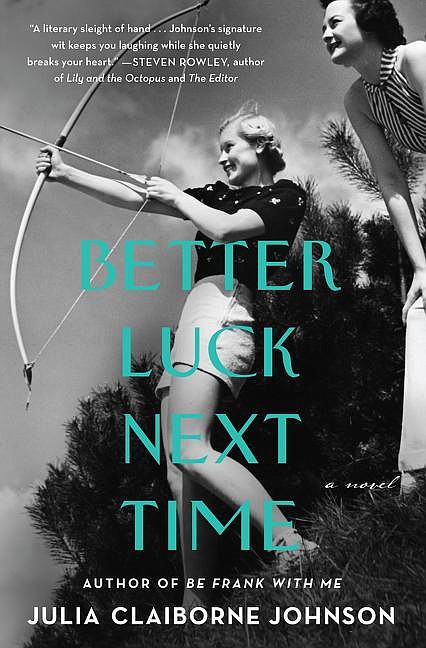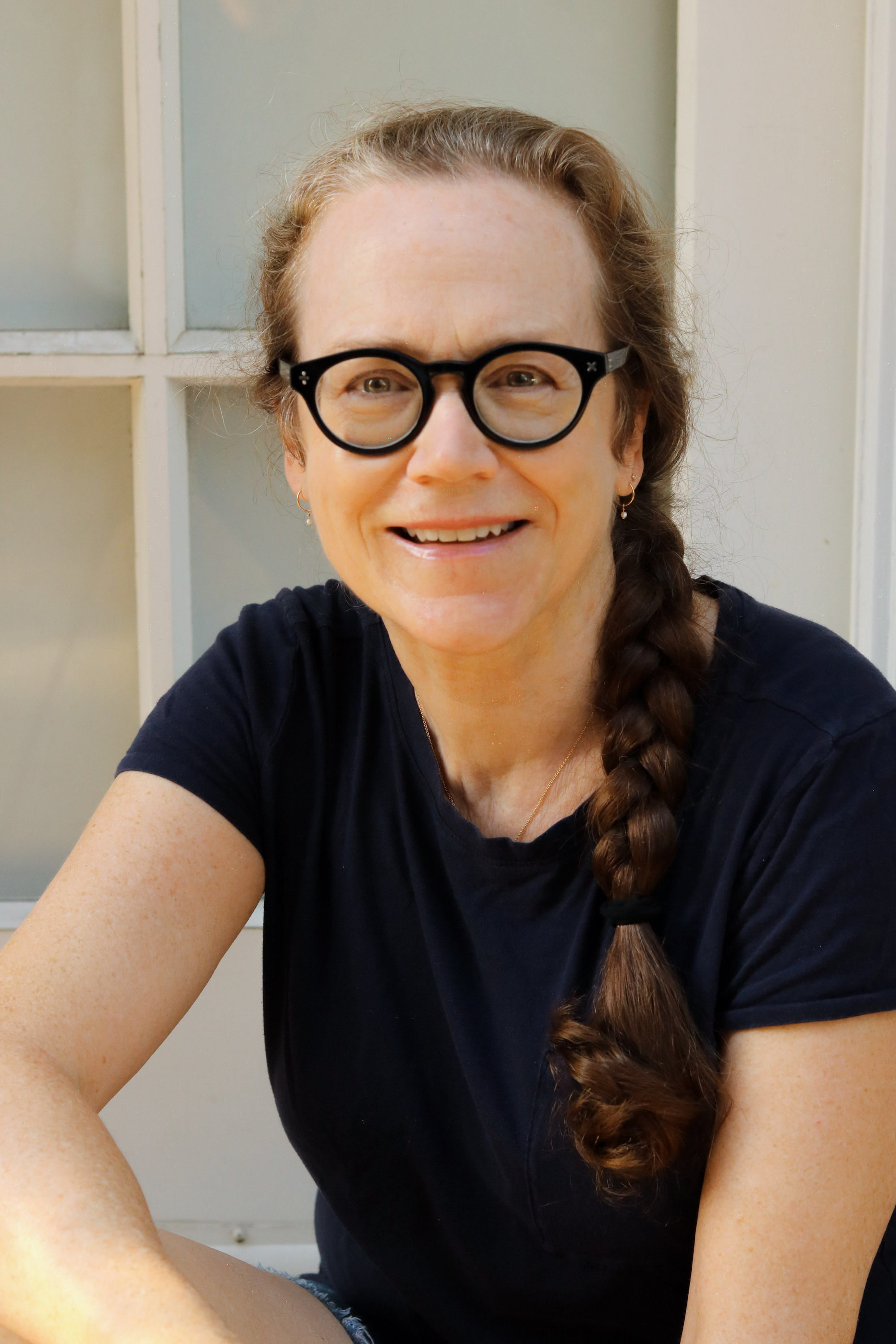"BETTER LUCK NEXT TIME" by Julia Claiborne Johnson (Custom House, 288 pages, $29).
Midway through Julia Claiborne Johnson's second novel, "Better Luck Next Time," two women show up at a masquerade dance wearing costumes they have stolen from a local college production of "A Midsummer Night's Dream." One is dressed as a fairy, "a gossamer costume" with "glittery wings"; the other wears Bottom's papier-mâché donkey's head, "a string of pearls, and nothing else." Both, it hardly bears mentioning, are intoxicated.
This tableau, naughtily comic and psychologically unsettling, offers an accurate snapshot of the novel, a work that invites comparisons to Shakespeare's madcap comedies. Characters meet in exotic settings where they fall in love, undergo transformations and endure sudden reversals before returning to the real world. The key difference is that, whereas Shakespearean comedies end in weddings, Johnson's characters are trying to get divorced.
"Better Luck Next Time" is set in 1938 at a "divorce ranch" in Reno, where unhappy wives can establish residence by staying in Nevada for six weeks, after which they can legally start their lives over. Johnson begins the story in 1988, when an unnamed interviewer tracks down Ward Bennett, a hand at the Flying Leap Dude Ranch 50 years earlier, and asks him about his experiences with two women, Emily Sommer and Nina O'Malley, who feature in a photograph the interviewer shows Ward (no costumes, no nudity - those come later).
After working at the Flying Leap, Ward fights in World War II and goes to medical school on the G.I. Bill. Now retired after decades of practice in his Tennessee hometown, Ward is pleased to talk about those long-ago weeks with Emily and Nina, who had a profound impact on his life. "I think I learned more about the subtleties of suffering and the milk of human kindness working on that ranch than I did in all the years that came after," Ward says. Enraptured by his memories, he doesn't inquire about the interviewer's connection to the women. Johnson withholds that information until the very end, a revelation that causes Ward, and readers, to re-evaluate the entire story.
What gives Johnson's novel its sprightly appeal is the instant camaraderie that springs up among the principals. Nina, tall and blonde, and Emily, a short brunette, immediately sense they are spiritual sisters with complementary personalities. Nina, a pilot and "stem winder" who craves adventure, teaches Emily to be brave, to act on her desires. Emily, a loving mother who has borne the disappointment of a lecherous husband, keeps Nina tethered to reality. They rope Ward into their hi-jinks, and soon the gang of three is larking around the Nevada desert, often at night, like teenagers at summer camp.
Even during the most ecstatic of the trio's escapades, Johnson, a Tennessee native, suggests that dark undercurrents plague Nina's and Emily's privileged lives. Nina revels in her reputation as a man-eater who is ready to discard husband No. 3, but at night she reveals her struggles. "The truth is I want to cry all day, every day," Nina tells Emily and Ward. "But I fight it. Usually I do a pretty good job of beating back despair." She is a woman ahead of her time, a maverick explorer who identifies with Gary Cooper, not Betty Grable. (As in "Be Frank With Me," Johnson's first novel, references to Hollywood abound in "Better Luck Next Time.") Nina's predicament is exacerbated by the fact that her current husband, a gentle soul whom she truly loves, prefers the company of men.
Emily's playtime is interrupted when her daughter Portia arrives, determined to reunite her parents. Spoiled and manipulative, Portia cares nothing for her mother's humiliation. Emily knows that her husband is using Portia as a "bargaining chip" to pressure Emily into returning home, but she is helpless against her daughter's appeals. Still, the Flying Leap induces Emily to fantasize about loving someone new, maybe someone younger - maybe, in fact, someone just like Ward.
Ward's narrating voice - wry and amused, alternating between innocence and weariness - is the signal achievement of Johnson's novel. A "merchant prince" of West Tennessee before his father's business went bankrupt, Ward bides his time working at the ranch but remains confident that in the future his status will rise again. "If nothing else, ranch work taught me about the gap between who a person pretended to be and who she really was," Ward says, an observation that applies equally to himself.
Laws regarding divorce have changed dramatically since the time of this novel, but Johnson's wisdom about marriage is relevant to any age. Ward's employer tells him that "marriage depends on luck as much as anything." Later Ward hears, "Keeping the magic of romance alive may require some sleight of hand." Like Shakespeare with his fairies, Johnson uses her own brand of magic to bring these characters to life and to remind us that love often requires a second chance.
For more local book coverage, visit Chapter16.org, an online publication of Humanities Tennessee.

